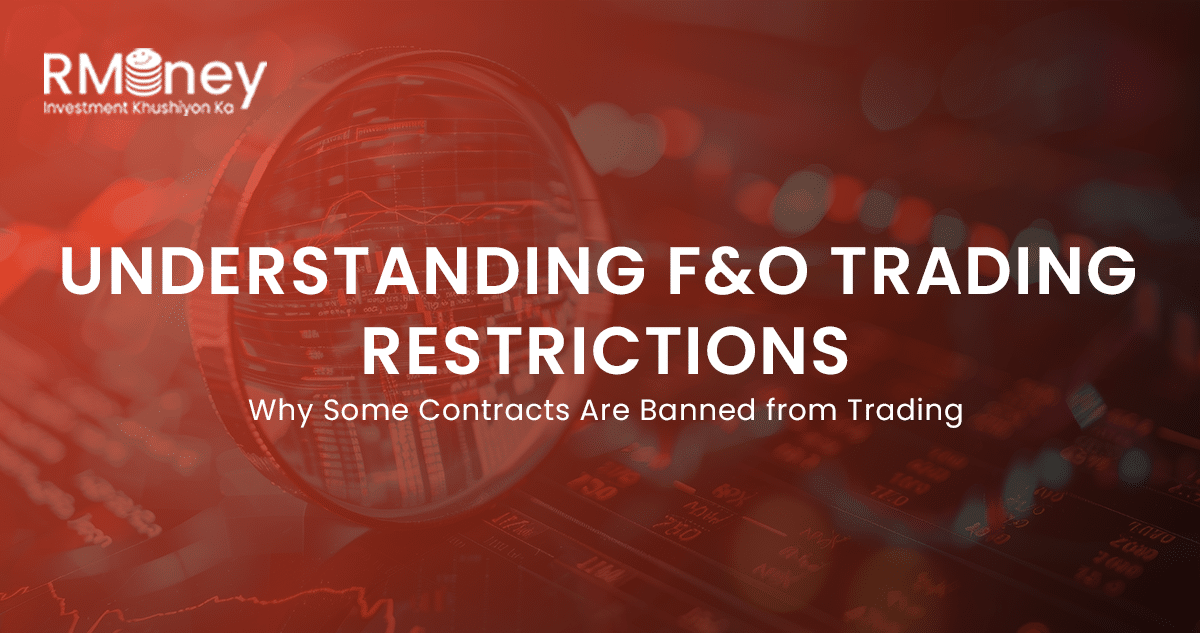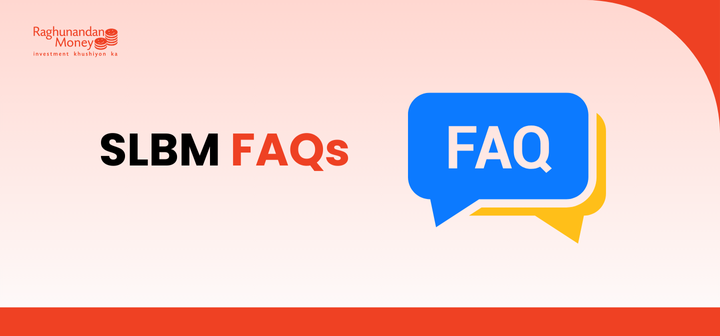Futures and Options (F&O) play a crucial role in the Indian derivatives market, enabling traders to hedge risk, speculate, and leverage their capital. However, there are times when trading in certain F&O contracts is restricted or completely banned. These restrictions are not arbitrary—they are essential to ensure stability, protect investors, and maintain market integrity.
Let’s understand why such bans occur and what they mean for traders.
Why Do F&O Contracts Enter the Ban Period?
An F&O contract of a stock enters a ban period when its open interest (OI) crosses 95% of the Market-Wide Position Limit (MWPL).
The MWPL represents the total number of open positions allowed across all market participants for a specific stock’s derivatives.
- When OI exceeds 95% of MWPL, trading in that stock’s F&O segment is restricted.
- The ban is lifted only when the OI falls below 80% of MWPL.
During the ban period:
- No new positions can be created in that stock’s F&O segment.
- Traders can only square off existing positions.
- The stock remains fully tradable in the cash (equity) segment.
Note: Index F&O contracts (like Nifty and Bank Nifty) are not subject to ban periods.
For official MWPL updates, traders can visit the NSE Position Limits page.
1. Low Trading Volume and Open Interest
Low liquidity is one of the primary reasons certain contracts are unavailable for trading.
If a contract has very few buyers or sellers, it becomes illiquid, making it difficult for traders to enter or exit without impacting prices.
To safeguard traders from abnormal price movements and market manipulation, exchanges or brokers may restrict such contracts.
2. Long-Duration Contracts
Contracts with long expiry periods (beyond three months) are more uncertain and riskier due to unpredictable market conditions.
Such contracts attract fewer participants and are more volatile. Hence, brokers and exchanges often limit or disable long-expiry F&O contracts to prevent excessive speculation.
3. Exchange or Regulatory Bans
At times, the exchange itself may impose a ban or suspension on a contract due to:
- Excessive speculation
- Abnormal price movements
- Breach of position limits
- Regulatory concerns raised by SEBI
These measures are preventive in nature, ensuring that the market remains orderly, transparent, and compliant.
4. Contracts Not Meeting Listing Criteria
Not every stock qualifies for F&O trading. Exchanges like NSE and BSE maintain strict eligibility norms, which include:
- Minimum public shareholding levels
- Sufficient trading volume and liquidity
- Large number of shareholders
- Price stability over time
If a stock fails to meet these norms, its derivative contracts may be delisted or temporarily restricted from trading.
Key Takeaways for Traders
- F&O bans are protective, not punitive. They aim to maintain market discipline and protect investors.
- Always check Open Interest (OI) and trading volume before entering a position.
- Keep track of NSE’s daily F&O ban list to avoid trading interruptions.
- Understand that restrictions help prevent price manipulation and unwarranted volatility.
- Diversify your trading approach—when F&O restrictions apply, use opportunities in the cash or index segment.
In Summary
F&O trading restrictions are introduced when market activity crosses safe limits or when liquidity and transparency are at risk.
Whether it’s due to high open interest, low participation, or exchange-imposed controls, these bans are designed to protect traders and ensure market stability.
Understanding these mechanisms helps traders make informed, compliant, and risk-aware decisions in the derivatives market.
For more information, contact RMoney at 0562-4266600 / 0562-7188900 or email us at askus@rmoneyindia.com
Kickstart Your Investment and Trading journey effortlessly with RMoney. Open your Demat Account today and take the first step towards smarter investing and trading!

Stock Trading Now trade in ₹9 Per Order or ₹ 999 Per Month Plans.
Future & Options Access F&O contracts with advanced tools for hedging and speculation.
Currency Trading Trade in major currency pairs and manage forex exposure efficiently.
Commodity Trading Diversify Trading with MCX & NCDEX by Trading in Gold, Silver, Base Metals, Energy, and Agri Products.
Margin Trading Funding Boost your buying power with upto 5X, Buy now Pay Later
Algo Trading Back test, Paper Trade your logic & Automate your strategies with low-latency APIs.
Trading View Leverage Trading View charts and indicators integrated into your trading platform.
Advanced Options Trading Execute multi-leg option strategies with precision and insights.
Stock Lending & Borrowing Earn passive income by lending stocks securely through SLB.
Foreign Portfolio Investment Enable NRIs and FPIs to invest in Indian markets with ease and compliance.
IPO Invest in upcoming IPOs online with real-time tracking and instant allotment updates.
Direct Mutual Funds 0% Commissions by investing in more than +3500 Direct Mutual Fund Scheme.
Corporate FDRs Earn fixed returns with low-risk investments in high-rated corporate fixed deposits.
Stocks SIPs Build long-term wealth with systematic investment plans in top-performing stocks.
Bonds & NCDs Access secure, fixed-income investments through government and corporate bond offerings.
Depository Services Safely hold and manage your securities with seamless Demat and DP services with CDSL.
Journey Tracing our growth and milestones over time.
Mission & Vision Guided by purpose, driven by long-term vision.
Why RMoney Platform Smart, reliable platform for all investors' needs.
Management Experienced leadership driving strategic financial excellence.
Credentials Certified expertise with trusted industry recognition.
Press Release Latest company news, updates, and announcements.
Testimonials Real client stories sharing their success journeys.
7 Reasons to Invest Top benefits that make investing with us smart.
SEBI Registered Research Trusted insights backed by SEBI-compliant research.
Our Technology Advanced tools enabling efficient online trading.
Calculators Access a suite of smart tools to plan trades, margins, and returns effectively.
Margin Calculator Instantly check margin requirements for intraday and delivery trades.
MTF Calculator Calculate MTF funding cost upfront to ensure full transparency before placing a trade.
Brokerage Calculator Know your exact brokerage charges before placing any trade.
Market Place Explore curated investment products and trading tools in one convenient hub.
RMoney Gyan Enhance your market knowledge with expert blogs, videos, and tutorials.
Performance Tracker Track our research performance with full transparency using our performance tracker.
Feedback Share your suggestions or concerns to help us improve your experience.
Downloads Access important forms, software, and documents in one place.
Locate Us Find the nearest RMoney branch or service center quickly.
Escalation Matrix Resolve issues faster with our structured support escalation process.
Back Office Log in to view trade reports, ledger, and portfolio statements anytime.
Account Modification Update personal or bank details linked to your trading account.
Fund Transfer Transfer funds instantly online with quick limit updation to your trading account.
Bank Details View our registered bank account details for seamless transactions by NEFT, RTGS or IMPS.
How to Apply IPO Step-by-step guide to apply for IPOs using your trading account.
RMoney Quick Mobile App Trade on-the-go with our all-in-one mobile trading app.
RMoney Quick login Quickly access your trading account through the RMoney Quick web-based trading.
RMoney Rocket Web Version Experience powerful web-based trading with advanced tools for algo traders.
RMoney Rocket Mobile Version Trade anytime, anywhere with our feature-rich mobile trading platform.




















